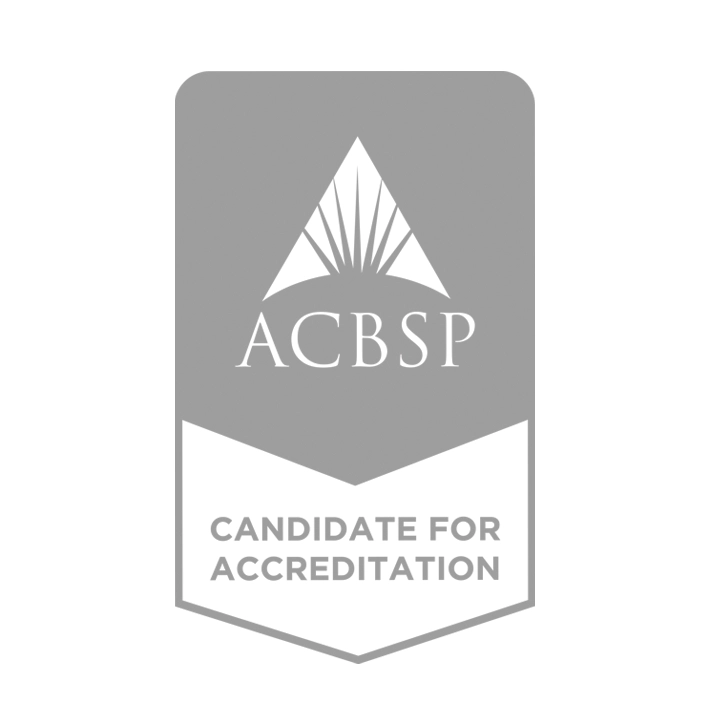

Financial Planning & Wealth Management
Overview
This in-demand profession directly contributes to the well-being of society by helping clients achieve their financial goals. Graduate from this program with a highly specialized skill set and a diverse range of professional opportunities.
The Financial Planning & Wealth Management Graduate Certificate program prepares university and college graduates for an exciting and rewarding career in the financial services sector. Students will gain specialized career expertise, technical knowledge and selling skills required to work in banks, credit unions, mutual fund companies, investment dealers, stock brokerages, independent financial planning firms and insurance companies. The final term of study includes a co-op in the financial services industry so that students can gain experience through practical work or through an Applied Project.
A Student Success Story
This Lambton College program is licensed to and delivered by Cestar College (PDF), a licensed private career college in Toronto, Ontario. Students who are registered at are students of a public college and as such, will receive full credit from Lambton College for all Lambton College courses completed at the Cestar College campus in Toronto. Students who meet program graduation requirements will graduate with a credential from Lambton College. Students may be scheduled to have classes on Saturdays.
Admission Requirements
- University degree
The admissions process is competitive and meeting the minimum academic requirements does not guarantee admission.
Lambton College reserves the right to alter information including admission requirements and to cancel a program or course at any time; to change the program curriculum as necessary to meet current competencies or changes in the job market; to change the pathways to third-party certification bodies; or to withdraw an offer of admission both prior to and after its acceptance by an applicant or student because of insufficient applications or registrations or over-acceptance of offers of admission. In the event Lambton College exercises such a right, Lambton College's sole liability will be the return of monies paid by the applicant or student to Lambton College.English Language Requirements
Applicants must submit proof of English proficiency through one of the following in-person test methods:
- IELTS Academic: Overall score of 6.0
- TOEFL IBT: Overall score of 70
- PTE Academic: Overall score of 53
- CAEL: Overall score of 60
- CELPIP: CLB 7
- Lambton Institute of English Placement Test: Overall score of 70
- Completion of an English pathway program at a recognized partner school
Meeting the minimum English requirements does not guarantee admission. Students with higher English proficiency scores will receive priority in the admission assessment process. Not all students will qualify for EAP-3106 in place of the required IELTS or TOEFL test scores.
Take a look at the Lambton in Toronto Cestar Campus
Costs
- Term 1 $9,410.00
- Term 2 $8,000.00
- Term 3 $8,700.00
- Term 4 $0.00
Total Cost of Program
Tuition fees are estimates and are subject to change each academic year. Fees do not include books (unless specifically noted), supplies or living costs.
Lambton College reserves the right to alter information including admission requirements and to cancel at any time a program or course; to change the location and/or term in which a program or course is offered; to change the program curriculum as necessary to meet current competencies or changes in the job market; to change the pathways third-party certification bodies; or to withdraw an offer of admission both prior to and after its acceptance by an applicant or student because of insufficient applications or registrations or over-acceptance of offers of admission. In the event Lambton College exercises such a right, Lambton College’s sole liability will be the return of monies paid by the applicant or student to Lambton College.
Additional Fees
-
Financial Calculator$45.00
WIL Project Fees
Students who are not successful in securing a co-op or fail to meet the co-op requirements will need to register in CPL-5559 WIL Project.
There is an additional fee of $2,480 for each student enrolled in the WIL Project course.
Textbooks
The anticipated cost for textbooks in this program is approximately $600 - $1,000 per term. This amount accounts for both mandatory textbook costs (included in tuition fees) as well as textbook fees not included in your tuition fee amount.
Important Dates, Deadline & Late Fees
For additional information on registration dates, deadlines and late fees please refer to Registration Dates and Deadlines.
Student Fees
A student services fee is included in your tuition.
Health Insurance Coverage
Emergency medical insurance is mandatory for all international students at Lambton College. This includes students who are full-time and part-time and who are on a co-op. This insurance is provided by GuardMe - a third party insurance provider.
See Insurance Costs & Details
Technology Requirements
In order to keep pace with the requirements of each and every course in your program, Lambton College requires that each student have access to a laptop while studying at our college.
Courses
Applications of Marketing Concepts
This course uses a case-study approach to introduce students to foundational concepts in the ever-changing marketing environment. Students analyze and solve common marketing challenges through the evaluation of real-world marketing case studies. Students examine the current marketing environment including concepts such as environmental scanning, segmentation, targeting and positioning, and marketing research. Students deepen their understanding of the marketing mix with analysis of product development and branding, pricing, distribution, and the many types of traditional and digital promotions. In addition to case analysis, students further develop their abilities to make informed marketing decisions through simulation exercises designed to emulate real-world scenarios faced by marketing managers.
Introduction to Managerial Accounting
The managerial accounting course provides students with skills to become highly effective in environments where quick decisions are required. Students learn to use financial information to make quick strategic decisions including how to use data to evaluate the effectiveness of current operations. Learning to maximize the profitability of operations, students interpret financial statements and supporting financial data that drive decision making. Topics covered in this course include cost management, analysis of financial performance, application of pricing strategies, and budgetary planning and control for a business enterprise.
Workplace Communication Applications & Analysis
In today's management and administration workplace, having strong computer skills is essential. This course provides students with resources and guidance to develop skills in Microsoft Office applications, focusing on three key areas: Word, Excel, and PowerPoint. While learning about these programs, students develop skills in time management, accountability, and their ability to follow direction.
Professional Communications
This course is designed for international students with diplomas or degrees. It focuses on polishing communications skills acquired through one's academic career and workplace experience. Through various business writing and speaking scenarios, students learn Canadian business practices and communication styles, incorporating inclusivity and diversity. Close attention is paid to proper incorporation of the intellectual property of others to ensure academic integrity. Students will practice organized and dynamic speaking and will strive for polished business documents.
Investment Funds in Canada
This course provides students with the necessary knowledge to make mutual fund investment recommendations to clients by analyzing the needs, timelines and risk tolerance of clients and comparing them to the fees and performance of various investments. Students will gain an understanding of the role of the mutual fund sales representative and the functioning of the Canadian financial marketplace. Ensuring ethics and compliance with mutual fund regulations will be emphasized throughout this course.
Real Estate Secured Lending
Helping clients make the most important purchase of their lives brings with it significant responsibility but also can create a strong sense of accomplishment and pride. This course enables students to have a clear understanding of real estate secured lending whether they are planning on a career as a financial advisor, financial planner, mortgage specialist, or mortgage agent. The course provides comprehensive knowledge about real estate secured credit, standard and complex mortgage products, and how to match the right product to a client's needs. It prepares students to conduct client interviews, answer challenging client questions with confidence and have the knowledge necessary to conduct credit assessments and evaluate applications effectively. The course will also cover the core values of the mortgage industry and the importance of integrity and ethics.
Principles of Economics
This course is a survey of the principles which apply to our society's efforts to solve economic problems. The survey includes an examination of fundamental economic problems, economic models, the nature of the Canadian economy, employment, inflation, the role of governments in managing the economy, and the functioning of demand, supply, and firms within the market system.
Financial Analysis & Budgeting
This course is an introduction to the essentials of financial management with a view for wealth maximization of a business enterprise. Topics covered in this course include the following: analysis of financial performance, cost-volume-profit analysis, financing alternatives and costs, management of working capital, budgeting, and capital investment decisions.
Investments I
This course teaches students about the securities industry and its regulatory environment as well as the impact of financial markets on investments. The features and pricing of fixed income securities, equity securities, and derivatives will be compared and contrasted. Students will also gain an understanding of the corporate financing process and learn how to analyze corporate financial statements.
Personal Financial Planning
This course builds awareness and expectations for the roles and responsibilities of both financial advisors and financial planners. It advances students' understanding of the integrative nature of the financial and economic landscape, including the roles of the government, the Bank of Canada, and Canadian banks. Students also explore basic personal financial planning principles. Upon completion, students understand the responsibilities and realities of advising in the financial services sector. Taking a holistic approach, students explore key financial planning topics including the financial planning process, personal financial statements and budgeting, family lifecycle, opportunity cost and the time value of money, tax-sheltered investing, personal credit, retirement, and estate planning.
Job Search & Success
This course provides student with skills and knowledge to help support their career search and succeed in the workplace. Students align their personal skill set and goals to guide them on their career paths. They will learn how to effectively conduct a job search, build a professional and well-tailored resume and cover letter, and develop and practice interview techniques. Students will also develop their personal brand to help support effective career networking and aid in their job search. Teamwork and collaboration in the workplace are also discussed. Self-reflection is used to inspire insight and support their professional career journey.
Customer Relationship Management
Customer Relationship Management (CRM) enables companies to manage relationships with customers and prospects, tracking, analyzing, and interpreting data to create a competitive advantage. This course examines the principles of CRM in making customer interactions more personalized, efficient, and effective. Students explore how CRM improves customer retention, drives sales growth, and helps teams better collaborate. Students analyze what information is most critical and how to efficiently analyze data gathered to identify the best fit. Emphasis is placed on assessing customer needs, customer centricity and improving the advisor's ability to effectively manage the customer relationship. Understanding human behaviour and bias in finance, investor psychology and advisors' response to it is also explored. The course is designed to assist students to develop their personal brand and strengthen their presentation, communication, and negotiation skills through role-playing, video assessment, and applied learning exercises. Both traditional and digital prospecting methods are explored, along with the application of effective discovery, proposal creation, and problem-resolution strategies, all in support of creating a customer relationship built on trust. Topics include goal setting, planning, time management, sales analytics, key performance indicator analysis, and customer relationship building.
Investment Conduct & Compliance
This course provides students with an understanding of the Canadian securities industry regulations. Procedures surrounding participant registration, account opening, sales and trading and placing orders will be discussed. The appropriate ethical guidelines and corporate responsibility when dealing with client accounts, transactions and products will be highlighted.
Investments II
This course builds upon concepts introduced in Investments I and provides students with a deeper understanding of portfolio management and the many different types of investment funds and products available. Investment analysis tools and techniques are explored, and students will appreciate the impact of taxation on investment returns. Students will also learn about key aspects when working with retail and institutional clients.
Personal Financial Planning Capstone
This course provides an opportunity for students to synthesize key program outcomes, combining theory with practice culminating in the preparation of a financial plan that reflects the holistic nature of a professional role in the Canadian financial services industry. Students follow the financial planning process covering areas in financial management, investment planning, insurance and risk management, tax planning as well as retirement planning and estate planning.
Insurance Planning
This course introduces students to the various types and characteristics of life and disability insurance, as well as the use of annuities and segregated funds in the formation of long term investments. The roles and responsibilities of the insurance agent surrounding policies, underwriting and claims will be discussed. The importance of ethical considerations and protecting the clients' interests will be emphasized throughout the course. Students will also be familiarized with basic tax principles surrounding life insurance.
Co-op Work Term
Co-operative education provides students with the opportunity to apply classroom learning to the workplace, undertake career sampling and gain valuable work experience that may assist students in leveraging employment after graduation.
WIL Project
Work Integrated Learning (WIL) Project is aimed at enriching students by connecting different program areas of study, cutting across subject-matter lines, and emphasizing unifying concepts. The focus of the WIL Project is to make connections between study and industry by engaging students in relevant and meaningful activities that are connected to and practiced within the professional workplace. WIL Project allows students to enhance and strengthen their employability prospects post-graduation by fine tuning skills and knowledge and meeting the expectations of today's employers. Students are required to attend the scheduled shifts in the WIL office, reporting to the WIL Supervisor. Weekly real-world challenges are presented in the WIL office, designed by industry professionals. In addition to the weekly assigned deliverables, students are also offered professional development sessions, and exposed to industry guest speakers, enhancing their opportunity to develop their professional network.
Co-op Eligibility & WIL Project Fee
In order to be eligible to secure an approved full-time co-op work term (CPL-1049), students must have a GPA of 2.8 or greater and complete all the co-op eligibility requirements. Failing to do so will require students to enroll in CPL-5559 WIL Project at an additional cost.
Contact
Centre for Global Engagement
LAMBTON COLLEGE SARNIA
1457 London Road
Sarnia ON N7S 6K4
After Graduation
Employment Opportunities

In the financial services industry there are several sectors where a graduate can be employed on an entry-level basis. These sectors include: banking, credit unions, mutual funds, investment dealers, stock brokerages, independent financial planning and insurance. Roles may include personal bankers, customer service associates, financial advisors or planners, insurance agents or brokers, financial planning support associates, investment advisors, and financial or credit analysts.
Upon graduation, many graduates choose to earn the Certified Financial Planner® or Qualified Associate Financial Planner® designations with FP Canada™, which require further courses, examinations, and/or work experience, all of which involve additional costs.
Accreditations & Certifications
Investment Funds In Canada
Students are required to purchase the course materials for the Investment Funds in Canada (IFC) course and one attempt at the Investment Funds in Canada licensing exam for a cost of $435.00 in the first term of the program. This fee is mandatory and is in addition to the student's tuition. The IFC course is the first step on the pathway to becoming a Personal Financial Planner® through Canadian Securities Institute (CSI).
Canadian Securities
Students can also choose to enroll in the Canadian Securities course (CSC)®, and/or the Conduct and Practices Handbook course (CPH)® on a voluntary basis. Please note that enrollment in the Financial Planning & Wealth Management program does not constitute enrollment in the actual licensing course(s) offered by MAGE or the Canadian Securities Institute (CSI). Separate registration and fees determined by the licensing association will apply and the additional registration fees are not included in the Financial Planning & Wealth Management program tuition. See the CSI website for additional information pertaining to these courses and associated fees. The Canadian Securities Course is the first step on the pathway to earning the Chartered Investment Manager® designation with CSI.
Life Insurance & Mortgage Agent Licensing
Students can choose to enroll in the Life Licensing Qualification Program (HLLQP)®, or the REMIC Mortgage Agent Course (RMAC) offered by REMIC® to become licensed to sell life insurance or a licensed mortgage agent.
Enrollment in these courses is voluntary. The Financial Planning & Wealth Management program does not constitute enrollment in the actual licensing course(s) offered by REMIC. Separate registration and fees determined by the licensing association will apply. Visit the Remic website.
Co-op
About Co-op
Students in this program have the opportunity to gain valuable work experience by applying classroom learning during co-op experiences.
Learn more about co-op terms and the roles and responsibilities of students and co-op advisors.
More Information
Student Responsibilities
- Course and program delivery schedules are proposed and subject to change for each intake.
- Students are required to bring their own laptop with wireless capability.
- Students are advised to bring an official copy of their most recent police clearance, driver's license, and vaccination record from their home country.

Transferring to Sarnia Campus
Students can transfer to the main campus in Sarnia before or during the first 10 days of any term, dependent on course and seat availability.
Special permission from the Dean, International Education must be granted after receiving a written request by email listing the following:
- Student's Name
- Lambton ID
- Reason for requesting the transfer
Transfers during a co-op term are not permitted.
Accreditation Council for Business Schools & Programs (ACBSP)
This program has achieved ACBSP Candidacy status which means that this program aligns with global business standards and prepares you for success in your career.
ACBSP Candidacy signifies our commitment to high quality, industry relevant education, ensuring you gain not just knowledge but a competitive edge in the business world.

Technology Requirements
It is required that students purchase a laptop with a Windows operating system.
Internet Speed Requirements
For best performance for students learning remotely, an internet connection with a minimum of 40 Mbps download and 10 Mbps upload speed is recommended in order to effectively use video conferencing and remote lecture delivery software as well as, other online resources remotely. Due to the large area over which students may be dispersed, we are unable to recommend a specific provider, so you will need to inquire around your area to find one that best suits your needs.
Minimum Laptop Requirements
In order to access the internet and virtually-delivered software and courseware, student laptops should include the following at a minimum. By meeting the following specifications, students will be equipped to access software and courseware on their laptop through the internet:
- Intel i5 8th Gen Processor or equivalent
- 16 GB of RAM (with a minimum of 8 GB)
- 100 GB HDD or more
- HD Graphics
- Webcam with a microphone
- Wireless 802.11n/ac 5ghz capable
- Windows Operating System (Windows 11)
Please note that Chromebooks and MacBooks may not support all software required for your program; students should verify compatibility with their professors.
Software
To ensure students are getting the most our of their classroom experience, some software will be required.
Lambton College has made this software easily accessible online. Students can leverage our Microsoft Office 365 software packages and services. In addition, much of the software you require for your courses will be available on demand for use on any device - on or off campus.


